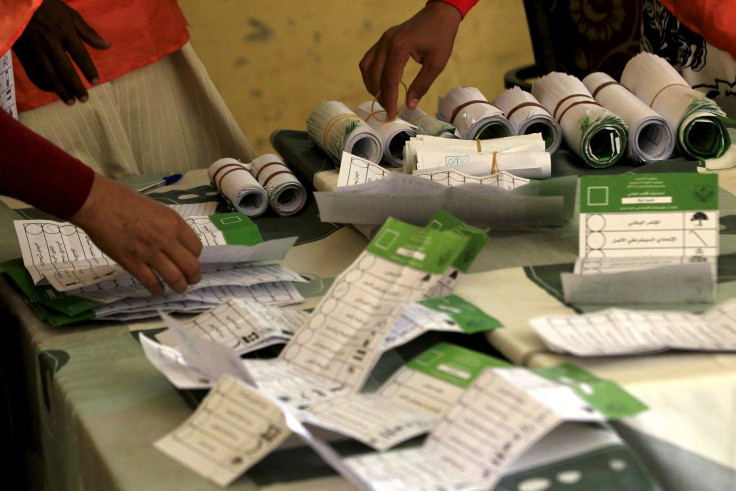Sudan Elections 2015: Ruling National Congress Party Admits Low Voter Turnout After Government Dismissed Remarks About Poor Participation

Sudan’s ruling National Congress Party (NCP) admitted Tuesday to a low voter turnout in the recent elections, less than a week after the Sudanese government dismissed remarks about poor participation at the polls due to voter apathy. The NCP’s secretary for political affairs, Mustafa Osam Ismail, attributed the small amount of ballots cast compared with the number of registered voters to Sudan’s old electoral register, which still contains names of the deceased and former citizens.
“There were millions of names that were not revised such as names of the dead and citizens who have become South Sudanese nationals,” Ismail told Radio Tamazuj, an independent news service for Sudan and South Sudan. “Many electorates have changed their residences, besides students who have graduated as well as military posts that have been changed.”
However, the NCP said last week the Sudanese government was pleased with the turnout during the four days of voting, which concluded Friday. “We can confirm that we are satisfied about the people’s participation. For those who are talking about low turnout, we believe they are not aware of what is happening or deliberately intending to talk about low participation,” the NCP’s deputy chairman, Ibrahim Ghandour, told China’s state-run Xinhua News Agency.
Ghandour’s remarks came after electoral observers estimated two-thirds of Sudan’s 13.3 million registered voters did not cast ballots in the elections. Former Nigerian President Olusegun Obasanjo, who led the African Union’s observation mission for Sudan’s polls, said the low turnout was likely due to the lack of electoral competition. “I believe 30-5 percent of voter cast their votes,” Obasanjo told Sudan’s state-run SUNA news agency.
The election results are expected to be announced April 27. Incumbent President Omar al-Bashir is expected to win re-election after the main opposition parties boycotted the polls by not fielding candidates. Bashir has ruled for a quarter century and his reign is not expected to be affected by an International Criminal Court warrant for his arrest in connection with war crimes in the North African country’s Darfur region after the court halted its probe in December, citing a need to “shift resources to other urgent cases.”
However, the controversy over Bashir’s rule has sparked violent clashes between government troops and armed opposition groups. The Sudanese People’s Liberation Movement-North (SPLM-N), the military wing of the Sudan People’s Liberation Movement opposition party, shelled rockets on major towns in South Kordofan state at the start of the polls last week in an attempt to disrupt voting. The SPLM-N, which is banned by the Sudanese government, also seized ballot boxes in the conflict-torn southern state earlier this month in an effort to sabotage the general elections.
© Copyright IBTimes 2024. All rights reserved.





















